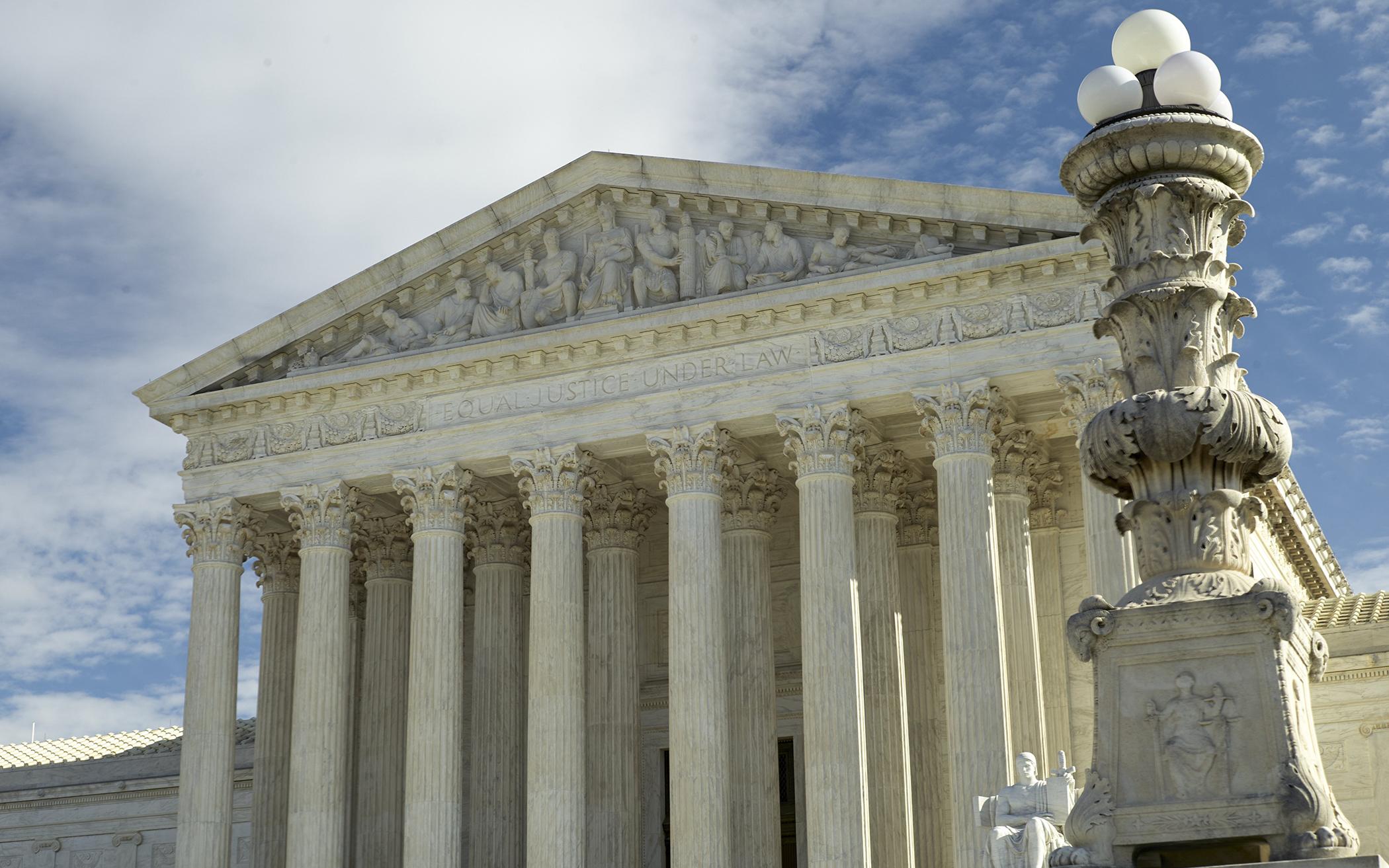On June 15, the U.S. Supreme Court ruled that LGBTQ people are protected from discrimination under Title VII of the 1964 Civil Rights Act. The ruling makes employment discrimination against LGBTQ persons illegal in all 50 states and has important implications for religious organizations.
“An employer who fires an individual merely for being gay or transgender violates Title VII,” wrote Justice Gorsuch in the majority opinion in the case of Bostock v. Clayton County. He was joined by Chief Justice John Roberts along with Justices Kagan, Sotomayor, and Ginsburg.
"Today, we must decide whether an employer can fire someone simply for being homosexual or transgender," wrote Gorsuch. "The answer is clear. An employer who fires an individual for being homosexual or transgender fires that person for traits or actions it would not have questioned in members of a different sex. Sex plays a necessary and undisguisable role in the decision, exactly what Title VII forbids."
Justice Alito filed a dissent joined by Justice Thomas. Justice Kavanaugh filed a separate dissenting opinion.
The ruling in Bostock covered two other LGBTQ discrimination cases, Altitude Express Inc. v. Zarda and R.G. & G.R. Harris Funeral Homes v. EEOC, each of which involved an employer firing an employee for being gay or transgender.
These employees sued their employers, claiming sex discrimination under Title VII of the Civil Rights Act of 1964.
Currently, Title VII, a section of the Civil Rights Act, allows religious exemptions for faith-based organizations to hire with an eye to religious qualifications. Some have used this to argue that religious organizations can refuse to hire and/or fire employees who are LGBTQ if it conflicts with their sincerely held religious beliefs.
However, because LGBTQ persons are now included under the “sex” category of Title VII, it is unclear whether these exemptions are still understood to permit religious organizations to discriminate on the basis of LGBTQ status.
"This decision doesn’t change the fact that faith-based employers can prefer people of their same faith, and that may mean they have freedom to not hire LGBTQ people," said Jennifer Pizer, law and policy director at an LGBTQ civil rights organization called Lambda Legal. “That’s a question we don’t know the answer to."
Gorsuch's opinion recognizes the Title VII exception for religious organizations, saying, "We are also deeply concerned with preserving the promise of the free exercise of religion enshrined in our Constitution; that guarantee lies at the heart of our pluralistic society.”
It also said employers can continue to appeal to the Religious Freedom Restoration Act of 1993, which offers broad protections for religious exercise.
In addition, a "ministerial exception" established by the Supreme Court in Hosanna-Tabor Evangelical Lutheran Sch. v. EEOC (Equal Employment Opportunity Commission) still stands. That ruling allows religious organizations to select "ministers"—often defined broadly to include non-ordained employees—without regard to protected classes in employment non-discrimination laws.
However, the court is ultimately unclear about how this decision will impact faith communities with traditional views, saying, “But how these doctrines protecting religious liberty interact with Title VII are questions for future cases. ... So while other employers in other cases may raise free exercise arguments that merit careful consideration, none of the employers before us today represent in this Court that compliance with Title VII will infringe their own religious liberties in any way.”
The Becket Fund for Religious Liberty filed an amicus brief for these cases that was signed by several faith-based organizations including the National Association of Evangelicals, the Church of Jesus Christ of Latter-day Saints, the Jewish Coalition for Religious Liberty, and the American Islamic Congress. (The Christian Reformed Church in North America is a member of the NAE.)
The Becket amicus brief said, "Construing 'sex' in Title VII to encompass sexual orientation and gender identity, will trigger open conflict with the faith-based employment practices of numerous churches, synagogues, mosques, and other religious institutions, such as religious schools, colleges, and charities."
Employment discrimination based on sexual orientation has already been explicitly illegal in Canada. A 1995 ruling by the Supreme Court of Canada found that sexual orientation constitutes an equivalent ground, under section 15 of the Canadian Charter of Rights and Freedoms, on which claims of discrimination may be based. “In 1996, the Canadian Human Rights Act was amended to specifically include sexual orientation as one of the prohibited grounds of discrimination.” (From the Government of Canada: Rights of LGBTQ Persons)
The CRCNA’s position statement on homosexuality is found on the denomination’s website.
The Banner has a subscription to Religion News Service and occasionally re-publishes articles of wide Christian interest, according to the license. This story was edited for length and the final paragraph, for Canadian readers, added. The original story can be found here.
About the Author
Religion News Service is an independent, nonprofit and award-winning source of global news on religion, spirituality, culture and ethics.

